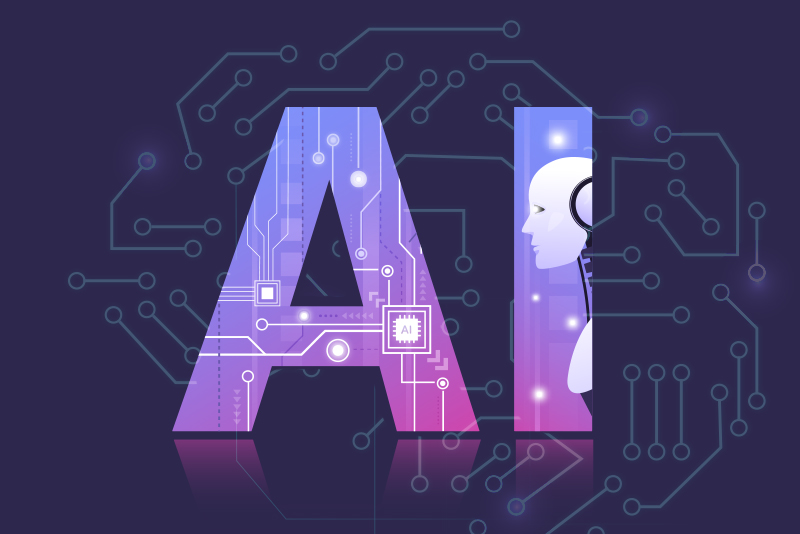Artificial intelligence (AI) is now playing a bigger role in the retail sector, altering how companies run their operations and improving customer experiences. Retail businesses use AI in a variety of ways to automate processes and make fact-based choices. Using AI-powered tools like machine learning algorithms, predictive analytics, and natural language processing, merchants may discover important details about the preferences, trends, and behaviors of their customers. As a result, businesses can tailor their marketing campaigns, manage their inventory more effectively, and improve customers’ purchasing experience. In today’s dynamic and data-driven industry, artificial intelligence outsourcing enables retail firms to maintain competitiveness, promote growth, and provide excellent customer experiences.
Use of AI in the Retail Industry
Here are some of the ways how retail businesses use AI
- Automated chatbots for customer service: AI chatbots provide even better customer service, enhance searching, notify users of new collections, and recommend related goods. For example, a chatbot can propose a snapback to complement a customer’s black hoodie, completing the look if they already own one. Eighty percent of brands globally either employ AI chatbots now or will do so soon. Chatbots have been introduced by Tommy Hilfiger and Burberry to assist their shoppers in navigating their collections.
- Inside the store assistance: Retailers also make investments in technologies that benefit both store employees and customers during the buying process. Paper price tags are no longer needed in Kroger shops due to Edge technology; instead, smart shelf tags are now in use. On the displays, this technology also offers video advertisements, nutritional information, and promotions. Customers can use Lowebot, an autonomous in-store robot from Lowe’s, to help customers in various languages to find what they need in the store. Due to its real-time monitoring capabilities, it also aids in inventory management.
- Management of the supply chain and logistics: Retailers worldwide experience losses of around $1.1 trillion annually as a result of poor execution in this area. Situations involving leftovers and low supply levels can be avoided. Restocking in the retail supply chain can be done using AI, which determines the demand for a certain product by factoring in past sales, location, weather, trends, promotions, and other factors. With the assistance of BlueYonder, Morrisons has improved their stock forecasting and replenishment in 491 stores. The number of in-store shelf gaps was reduced by up to 30% as a result.
- Price adjustments: By demonstrating the expected outcomes of various pricing techniques, retail applications of AI could help businesses determine prices for their products. Systems do this by collecting data on related items, marketing campaigns, sales figures, and other information. To entice new customers and boost sales, business owners can offer the best bargains. eBay and Kroger are two companies that already utilize artificial intelligence to improve their prices.
- Tracking of customer satisfaction: Artificial intelligence is able to determine your consumers’ emotional state as they purchase. For this purpose, Walmart has already launched a facial recognition technology. Each checkout lane has cameras mounted, and if a customer becomes irate, a shop employee will approach him or her. Mood monitoring will undoubtedly aid in improving customer relations.
- Prediction of consumer behavior: Business owners can employ behavioral economics and create individualized client relationships with the help of platforms like Personali and other artificial intelligence systems. To help enhance sales, Personali has an Intelligent Incentive platform that examines each customer’s psychology and emotions. The algorithm analyzes the emotional reactions and behavior of the client throughout past purchasing experiences and attempts to generate the best pricing offers for a specific visitor.
- Voice-based search: To give customers a straightforward and rapid voice search experience, major retailers including Walmart, Tesco, Kohl’s, Costco, and many others use Google or Amazon AI technology. Customers can now just ask Alexa for the item they want and the status of its delivery without having to type anything. In fact, voice search is used by 27% of mobile users globally, and 52% of them find it more convenient than mobile apps and websites.
- Classification of products: An excellent example of machine learning in the retail sector is LovetheSales.com, which classifies more than a million items from different sellers using machine learning models. For clients looking for a specific kind of product, systems based on machine learning categorize and classify products. Lalafo vendors only need to upload an image of the item they wish to sell, and computer vision-enabled machine learning retail software will identify it, classify it, and even offer a price. With the use of machine learning models, this platform already processes more than 900 requests in a single second, boosting sales with pertinent material.
The global AI in retail industry, estimated to be $8.41 billion in 2022 by Precedence Research, is anticipated to grow to around $46 billion by 2032.
Unlock the power of AI to optimize your operations, enhance the customer experience, and drive growth.
Contact our expert team today to discuss how our AI solutions can revolutionize your business.
Retailers can make data-driven decisions, customize marketing campaigns, and improve inventory management by utilizing AI technologies such as machine learning, predictive analytics, and natural language processing. Implementing and maintaining AI capabilities, however, can be difficult and expensive. This is where working with an AI-focused business process outsourcing company becomes beneficial. Retail organizations can get the most up-to-date AI solutions without making significant investments in resources and technology by utilizing the knowledge and infrastructure of an AI outsourcing partner. This enables them to take advantage of the benefits that AI offers while concentrating on their core skills.




